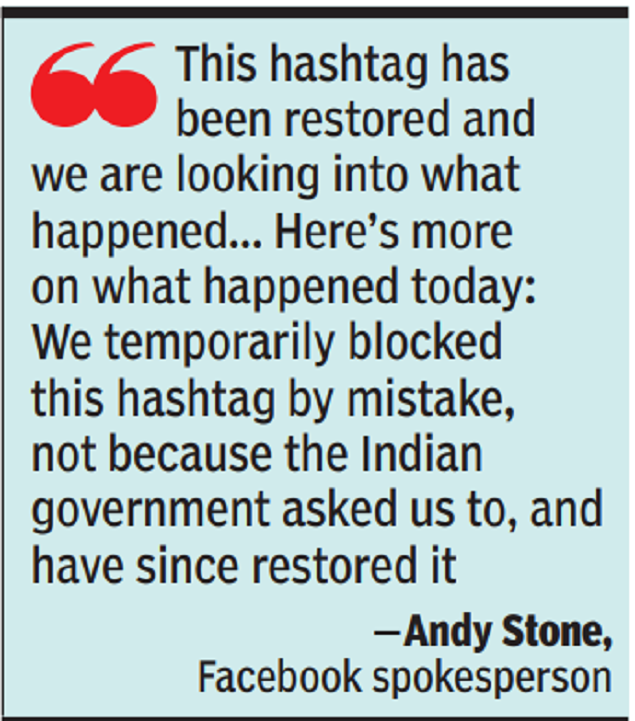The Union ministry of electronics and information technology shared a statement on Koo app, India’s domestic alternative to Twitter, saying, “A story by Wall Street Journal attributing removal of a certain hashtag by Facebook to GOI’s efforts to curb public dissent is misleading on facts and mischievous in intent. Govt has not issued any direction to remove this hashtag. Facebook has also clarified that it was removed by mistake.”

On Wednesday, several thousand posts carrying the hashtag were unavailable on Facebook for several hours. When users searched for the trend, they were redirected to a page that stated that the posts were “against Facebook’s community standards”.
Responding to a tweet asking why the hashtag was blocked, Facebook spokesperson Andy Stone said around 1.10 am, “This hashtag has been restored and we are looking into what happened.” Around 5.30 am, in response to another tweet, Stone said, “Here’s more on what happened today: We temporarily blocked this hashtag by mistake, not because the Indian government asked us to, and have since restored it.”
Several other international news organisations, including Guardian and Buzzfeed, also wrote about Facebook blocking the hashtag, which was the top trend in India through the day, garnering over 302k tweets.
A statement shared by Facebook with TOI echoed Stone’s tweets.
Last week the government ordered social media giants to take down 100 ‘fake’ and ‘misleading’ posts and URLs around Covid-19. Pointing to increasing instances of online censorship, cyber experts said archaic laws that restrict the freedom of expression and speech needed to be overhauled. “Laws that require confidentiality of takedown notices (such as Section 69A of the IT Act) should be repealed,” Mozilla Tech policy fellow, Divij Joshi, told TOI.
Social media companies should also release “meaningful information about content moderation, including what is removed and what is allowed to stay, through regular reports…They should provide reasons for removal especially to affected persons whose content is removed,” he added.


